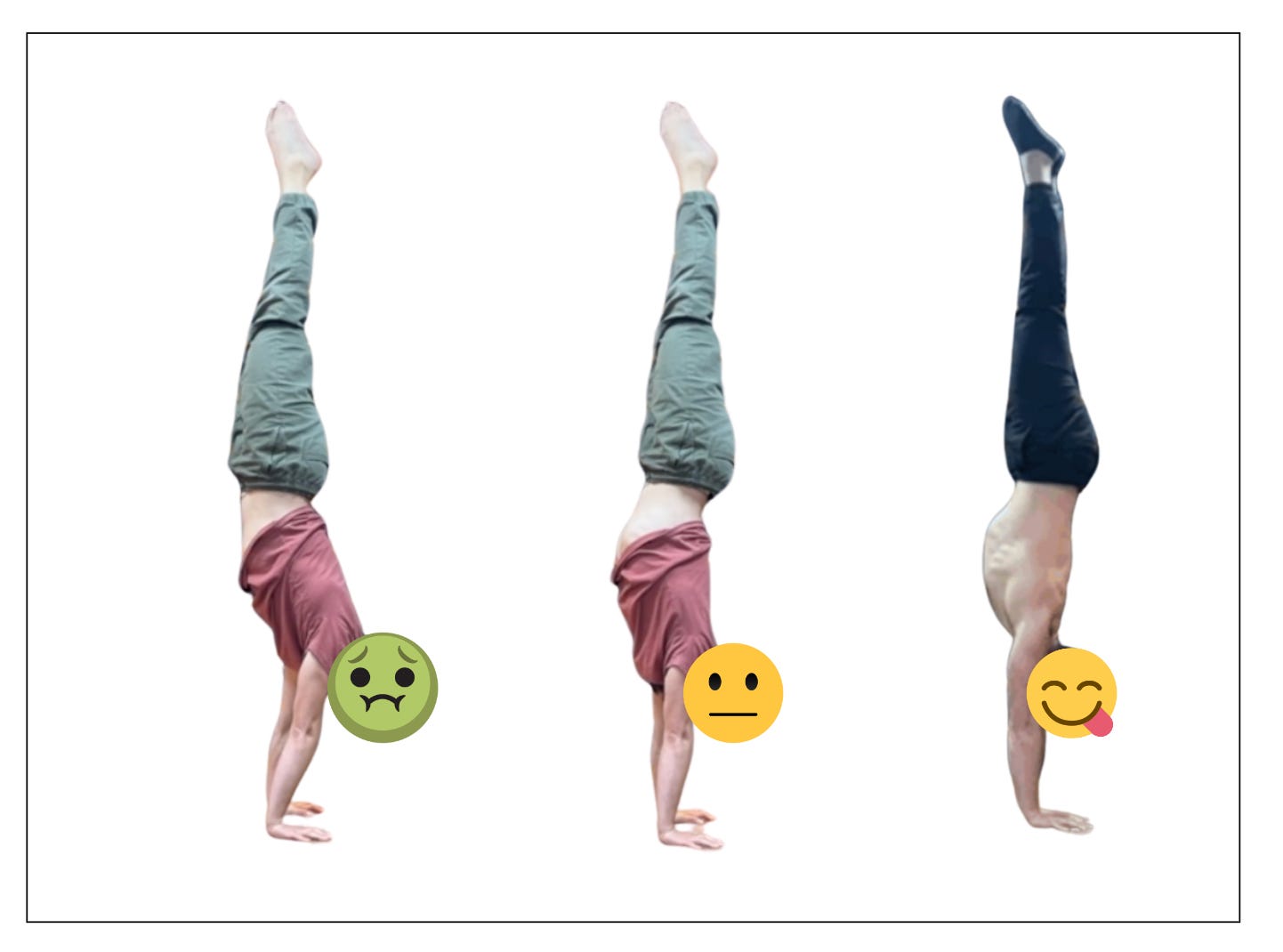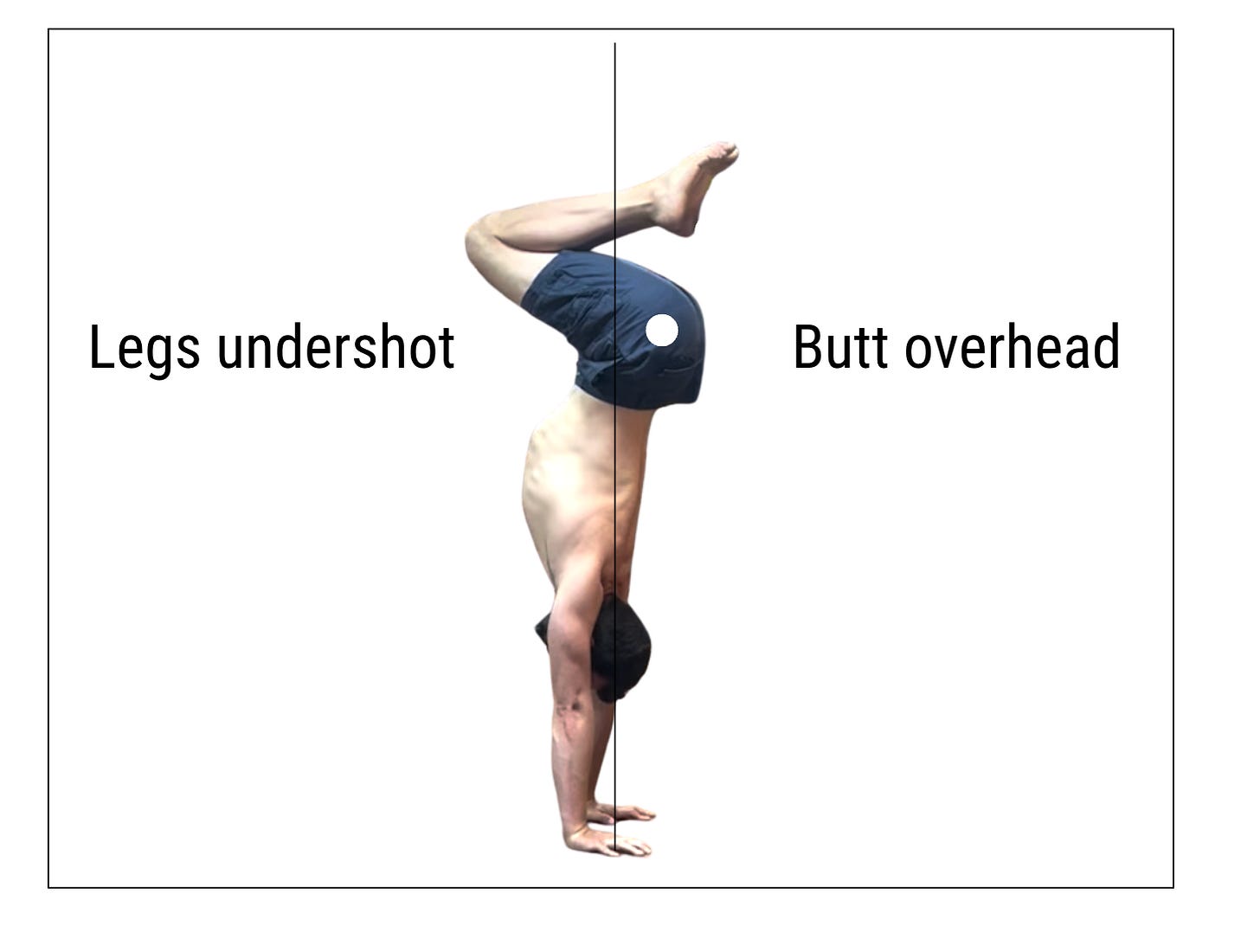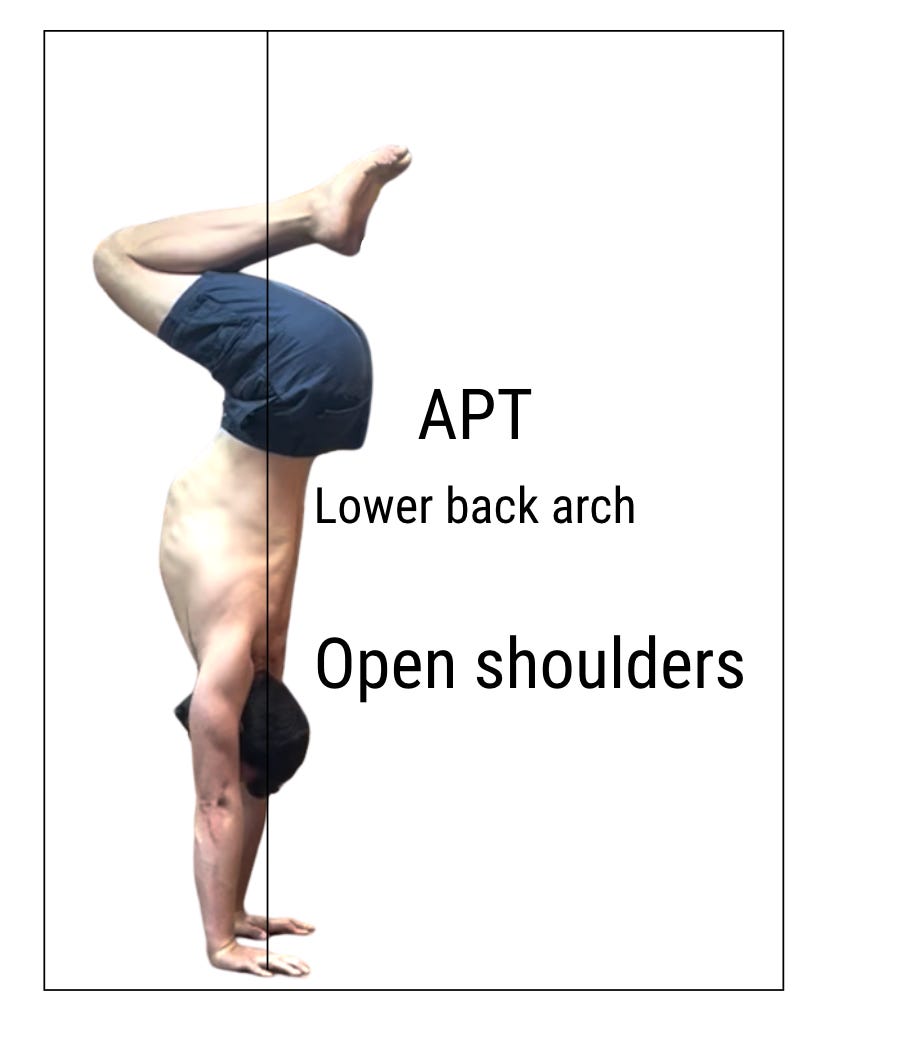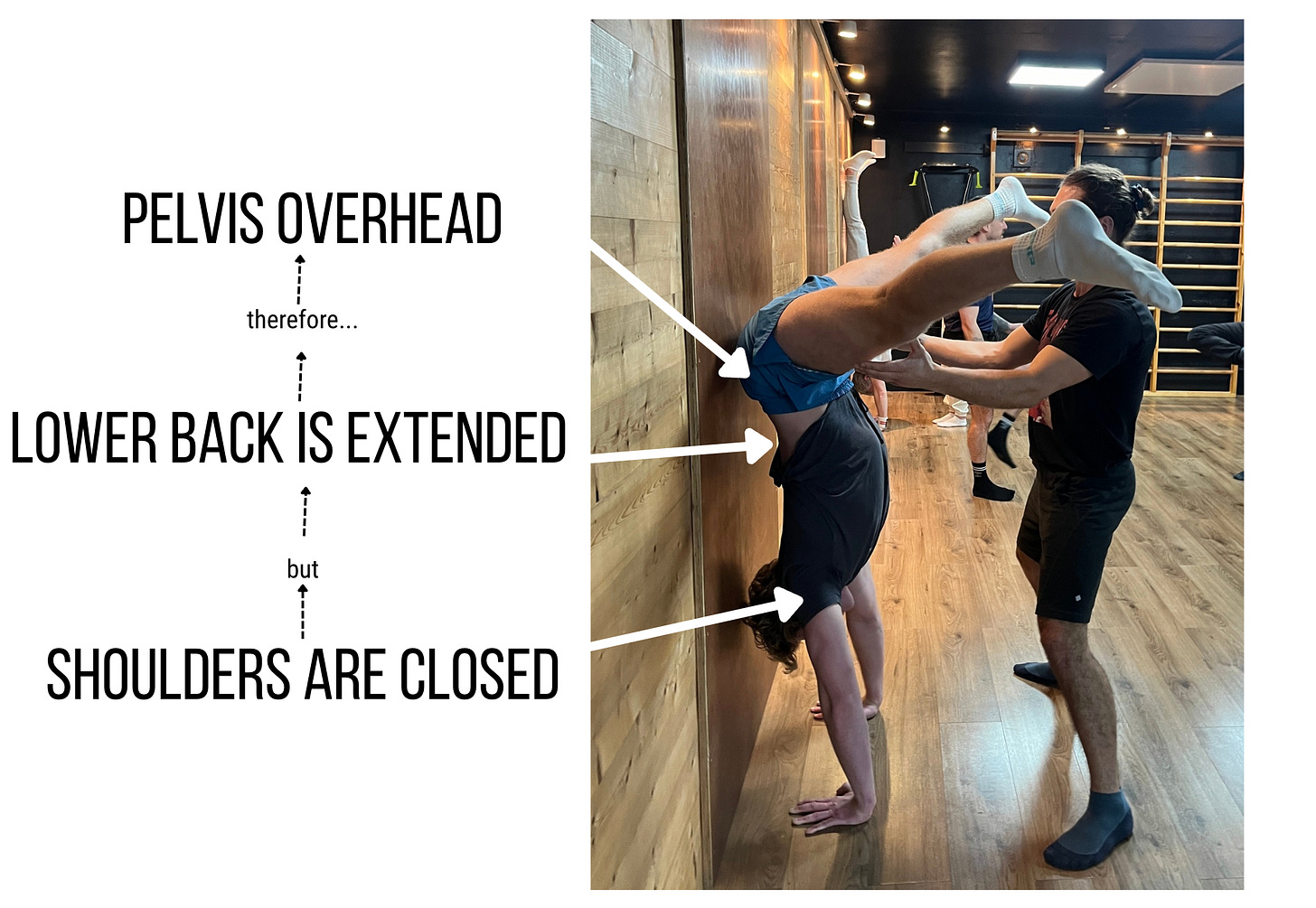We have defined the blurry term of “pike” as any position where the pelvis is the overshot counterweight.
This gave us the “piked family” of alignments, comprised amongst others of straddle, tuck and diamond.
Depths in Pikes
Like any other position in handstands, when it comes to Pike, there is the good, the bad and the ugly. And as everything else in our method, I need you to understand the different forms and progressions of pike, what distinguishes them from one another, and the relevance of each.

The Default Pike
Just your priority, not so long ago, was to hold “a handstand”, not the best handstand, your first pikes will compromise here and there on technique.
Remember, in a pike, we want to have the pelvis overshot.
To do so, we have a few tools are our disposal:
a) shoulder flexion. You are still dreaming of the trauma left by the GDBD exercise, and for good reason! Flexing - opening - your shoulders allows the pelvis to travel overhead. To achieve a pike, you will need to do that.
→ If your shoulders aren’t fully open, you will need to open the shoulders as much as possible
→ If your shoulders are fully open, ditto.
→ If you’re hyperflexible, you will need to stop short of your max.
b) lower back arching. When we extend our lumbar spine, our butt starts sticking out. Convenient, since this is precisely what we’re trying to do in a pike!
c) anterior pelvic tilt. When we tilt our pelvis anteriorly, which is intrinsically linked to your lumbar extension, same: the pelvis starts moving more overhead.
We are left, therefore, with the following:
Default pike = flexed shoulders + arched lower back + APT
Notes:
You’ll have different degrees of mobility in your shoulders and spine. Shoulders, spine and pelvis work together to allow you to achieve a pelvis placed overhead, and will make up for each other’s limitations (unless you lack mobility everywhere!).
The Compressed Pike
Now that you have found your recipe (the amount of shoulder flexion, lower back arching and APT you need to cook your default pike), you may want to “improve” that line.
Keep reading with a 7-day free trial
Subscribe to Handstand Academy to keep reading this post and get 7 days of free access to the full post archives.




